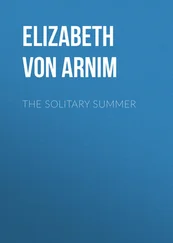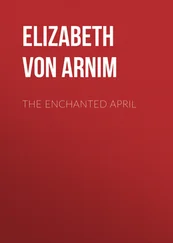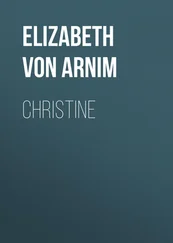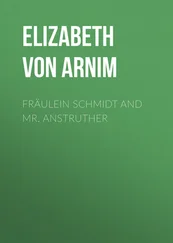Elizabeth von Arnim - The Pastor's Wife
Здесь есть возможность читать онлайн «Elizabeth von Arnim - The Pastor's Wife» — ознакомительный отрывок электронной книги совершенно бесплатно, а после прочтения отрывка купить полную версию. В некоторых случаях можно слушать аудио, скачать через торрент в формате fb2 и присутствует краткое содержание. Издательство: Иностранный паблик, Жанр: foreign_prose, foreign_antique, на английском языке. Описание произведения, (предисловие) а так же отзывы посетителей доступны на портале библиотеки ЛибКат.
- Название:The Pastor's Wife
- Автор:
- Издательство:Иностранный паблик
- Жанр:
- Год:неизвестен
- ISBN:нет данных
- Рейтинг книги:5 / 5. Голосов: 1
-
Избранное:Добавить в избранное
- Отзывы:
-
Ваша оценка:
- 100
- 1
- 2
- 3
- 4
- 5
The Pastor's Wife: краткое содержание, описание и аннотация
Предлагаем к чтению аннотацию, описание, краткое содержание или предисловие (зависит от того, что написал сам автор книги «The Pastor's Wife»). Если вы не нашли необходимую информацию о книге — напишите в комментариях, мы постараемся отыскать её.
The Pastor's Wife — читать онлайн ознакомительный отрывок
Ниже представлен текст книги, разбитый по страницам. Система сохранения места последней прочитанной страницы, позволяет с удобством читать онлайн бесплатно книгу «The Pastor's Wife», без необходимости каждый раз заново искать на чём Вы остановились. Поставьте закладку, и сможете в любой момент перейти на страницу, на которой закончили чтение.
Интервал:
Закладка:
"Yes, yes," assented Ingeborg eagerly, whose appreciation of her parents' attitude was so warm that she almost felt she must stay and bask in its urbanity forever and not go away after all to the bleak distance of East Prussia.
"Your father loses not only a daughter," continued Mrs. Bullivant, "but £500 a year of his income."
"Would one call it his income?" inquired Judith, politely but yet, if one could suspect a being with an angel's face of such a thing, with some slight annoyance. "I thought our grandmother—"
"Judith dear, the £500 a year your grandmother left to each of you was only to be yours when you married," explained Mrs. Bullivant, also with some slight annoyance beneath her patience. "Till you married it was to be mine—your father's, I mean, of course. And if you never did marry it would have been mine—I mean his—always."
Ingeborg had heard of her Swedish grandmother's will, but had long ago forgotten it, marriage being remote and money never of any interest to her who had no occasions for spending. Now her heart bounded with yet more thankfulness. What a comfort it would be to Robert. How it would help him in his research. Extraordinary that she should have forgotten it. When he told her of his stipend of five thousand marks—£250 it was in English money, he explained, and there was the house and land free—most of which went in his experiments, but what was left being ample, he said, for the living purposes of reasonable beings if they approached it in a proper spirit, it all depending, he said, on whether they approached it in a proper spirit. "And after all," he had added triumphantly, throwing out his chest just as she was about to inquire what the proper spirit was, "no man can call me thin —"—to think she had forgotten the substantial help she was going to be able to bring him!
The full splendour of her father's generosity in being pleased at her engagement was now revealed to her. The relief of it. The glad, warm relief. So must one feel who is born again, all new, all clean from old mistakes and fears. She felt lifted up, extraordinarily happy, extraordinarily good, more in harmony with Providence and the Bible than she had been since childhood. She would have been willing, and indeed found it perfectly natural, to kneel down with her mother and Judith then and there and say prayers together out loud. She would have been willing on the crest of her wave of gratefulness quite readily to give up Herr Dremmel in return for the family's immense kindness in not asking her to give him up. She had felt nothing like this exaltation before in her life, this complete being in harmony with the infinite, this confidence in the inherent goodness of things, except on the afternoon her tooth was pulled out.
"Oh," she exclaimed, laying her cheek on her mother's hand, "oh, I do hope you'll like Robert!"
"Robert?" said Mrs. Bullivant; and at the tea-table there was a sudden silence among the cups, as though they were holding their breath.
"His name's Robert," said Ingeborg, still with her cheek on her mother's hand, her eyes shut, her face a vision of snuggest, safest contentment.
"What Robert, Ingeborg?" inquired Mrs. Bullivant, shifting her position to stare down more conveniently at her daughter.
"Herr Dremmel. It's his Christian name. He's got to have one, you know," said Ingeborg, still with her eyes shut in the blissfulness of perfect confidence.
"Herr who?" said Mrs. Bullivant, a sharper note of life in her voice than there had been for years. "Here's your father," she added quickly, hastily composing herself into the lines of the unassailable invalid again as the door opened and the Bishop came in.
Ingeborg jumped up. "Oh, father," she cried, running to him with the entire want of shyness one may conceive in the newly washed and forgiven soul when it first arrives in heaven and meets its Maker and knows there are going to be no more misunderstandings for ever, "how good you've been!"
And she kissed him so fervently in a room gone so silent that the kiss sounded quite loud.
The Bishop was nettled.
Was he then at any time not good? His daughter's excessive gratitude, really almost noisy gratitude, for what after all had been inevitable, the permission to go up to London and place herself in the hands of a dentist, suggested that humaneness on his part came to her as a surprise. He did feel he had been good to let her go, but he also felt he would have been not good if he had not let her go. Certainly Redchester opinion would have condemned him as cruel even if he himself, who knew all the circumstances, was not able to think so. What had really been cruel was the terrible muddle his papers and letters had got into owing to her prolonged absence. Grave dislocations had taken place in the joints of his engagements, several with far-reaching results; and all because, he could not help feeling, Ingeborg, in spite of precept and example, did not in her earlier years use her toothbrush with regularity and conscientiousness. Manifestly she did not, or how could she have needed nine enormous days to be set in repair? He himself, who regarded his body as a holy temple, which was the one solution of the body question that at all approached satisfactoriness, and had accordingly brushed his teeth, from the point of view of their being pillars of a sacred edifice, after every meal for forty years, had never had a toothache in his life.
"Let us hope now, Ingeborg," he said, reflecting on the instance she had provided of the modern inversion of the Mosaic law which visited the sins of the fathers on the children, the original arrangement, the Bishop felt, being considerably healthier, and gently putting her away in order to go over to the tea-table where he stood holding out his hand for the cup Judith hastened to place in it, "let us now hope, now you have had your lesson, that in future you will remember cleanliness is next to godliness."
And this seemed to Ingeborg an answer so surprising that she could only stare at him with her mouth fallen a little open, there where he had left her in the middle of the carpet.
But the Bishop had not done. He went on to say another thing that surprised her still more; nay, smote her cold, shook her to her foundations. He said, after a pause during which the silence in the room was remarkable, his back turned to her while at the tea-table he carefully selected the particular piece of bread and butter he intended to eat, "And pray, Ingeborg, why did you not write the moment you heard from us, and congratulate your sister on her engagement?"
CHAPTER VIII
Ingeborg was dumb.
Her father's question was like a blow, shocking her back to consciousness. The warm dream that all was well, that she was understood, that there was love and kindliness for her at home after all and welcome and encouragement, the warm feeling of stretching herself in her family's kind lap, confident that it would hold her up and not spill her out on to the floor, was gone in a flash. She was hit awake, hit out of her brief delicious sleep. Her family had not got a lap, but it had an entirely unprepared mind, and into that unprepared mind she had tumbled the name of Dremmel.
"Judith—engaged?" she stammered faintly, on the Bishop's wheeling round, cup in hand, to examine into the cause of her prolonged silence.
"Your incredulity is not very flattering to your sister," he said; and Judith's eyelashes as she concentrated her gaze on the teapot were alone sufficiently lovely, the curved, dusky-golden soft things, to make incredulity simply silly.
Mrs. Bullivant avoided all speech and clung to her sofa.
"It's—so sudden," faltered Ingeborg.
"Much may happen in a week," said the Bishop.
"Yes," murmured Ingeborg, who knew that terribly, too.
Читать дальшеИнтервал:
Закладка:
Похожие книги на «The Pastor's Wife»
Представляем Вашему вниманию похожие книги на «The Pastor's Wife» списком для выбора. Мы отобрали схожую по названию и смыслу литературу в надежде предоставить читателям больше вариантов отыскать новые, интересные, ещё непрочитанные произведения.
Обсуждение, отзывы о книге «The Pastor's Wife» и просто собственные мнения читателей. Оставьте ваши комментарии, напишите, что Вы думаете о произведении, его смысле или главных героях. Укажите что конкретно понравилось, а что нет, и почему Вы так считаете.












